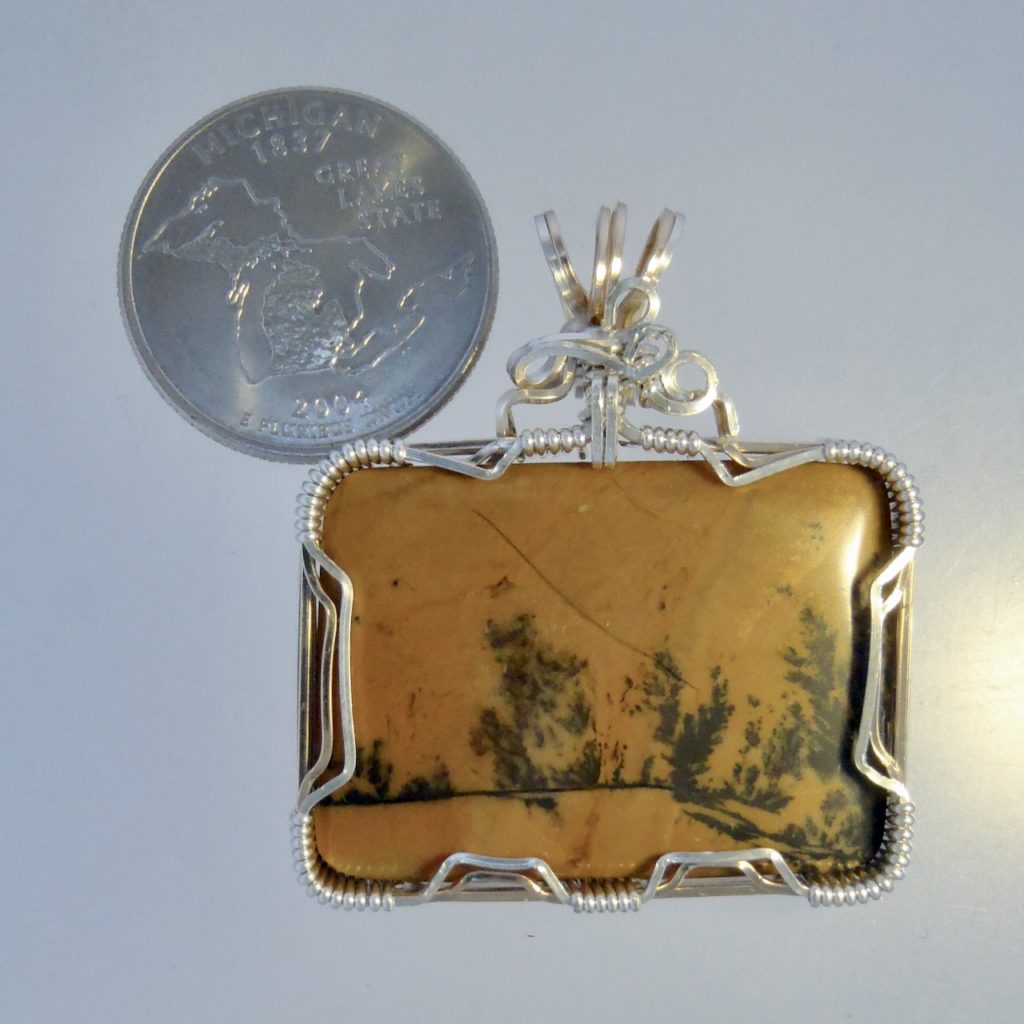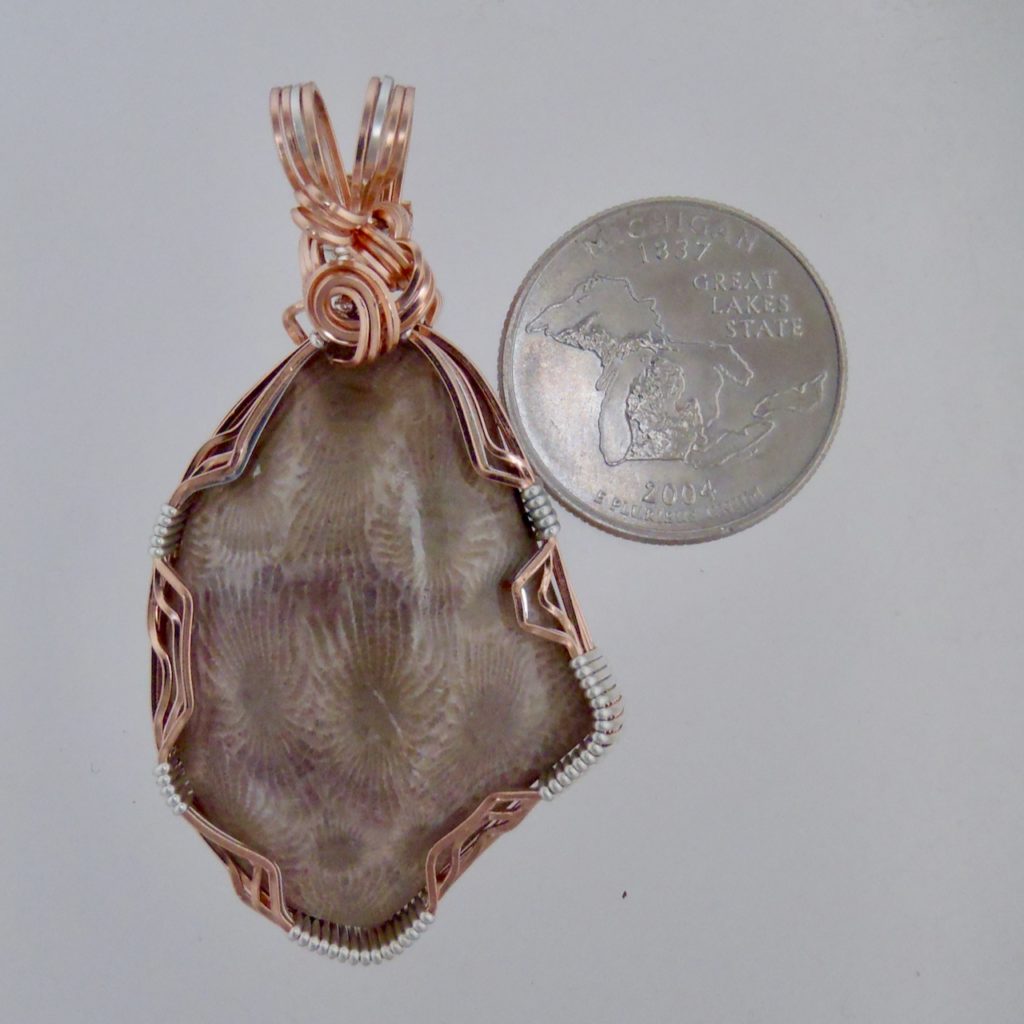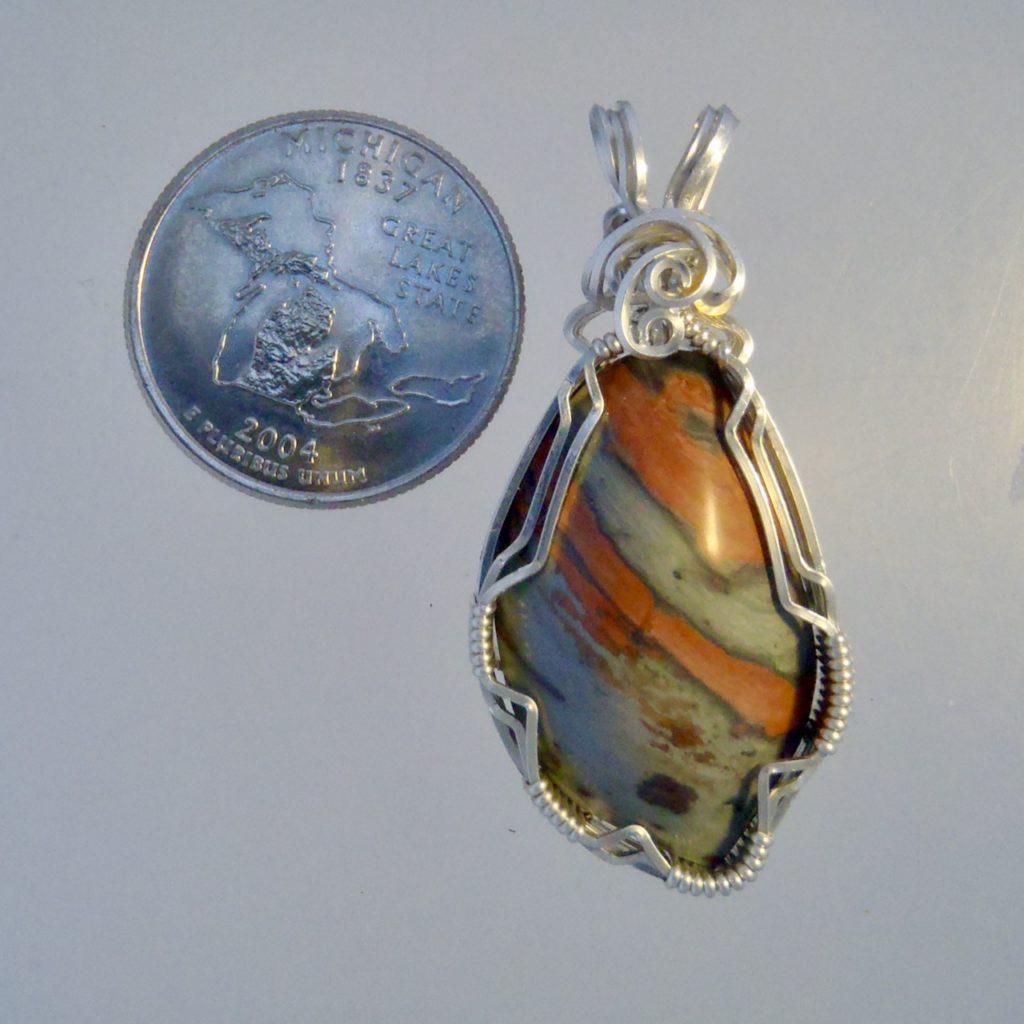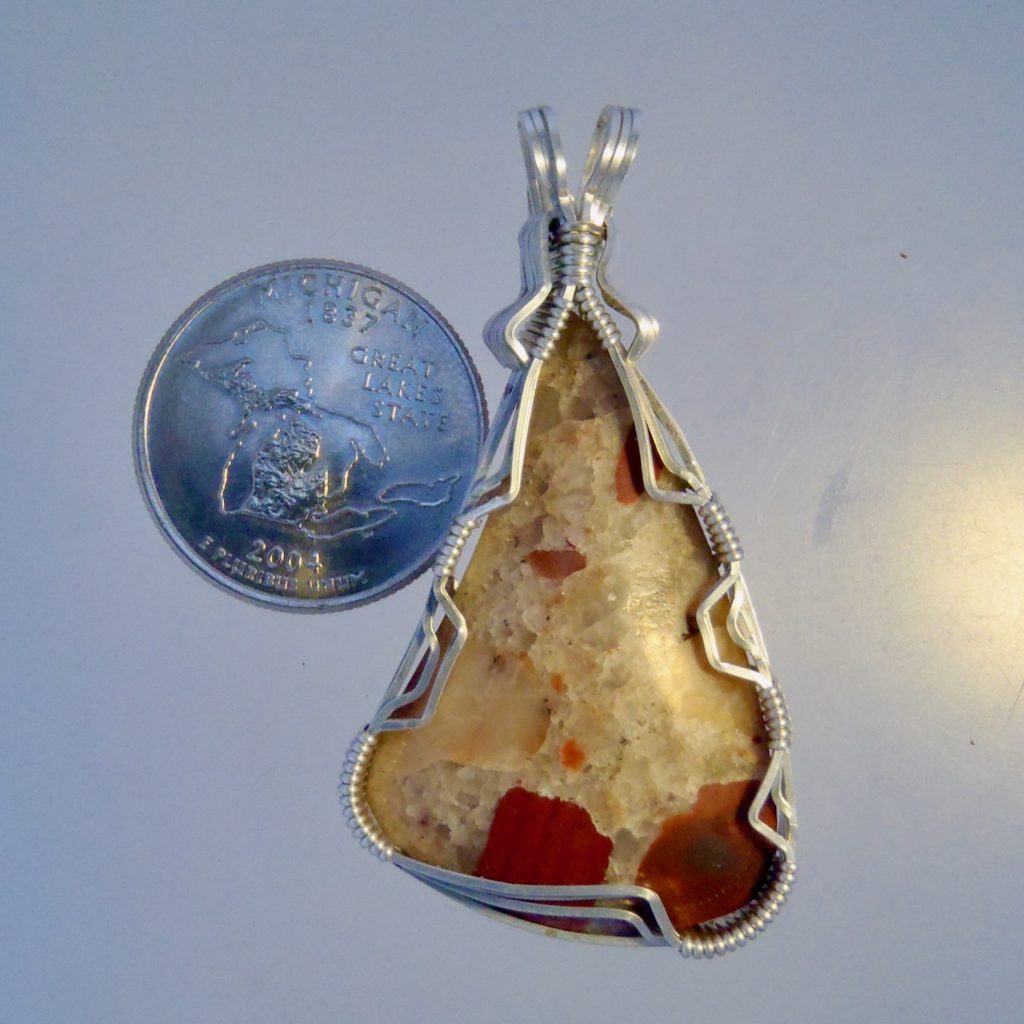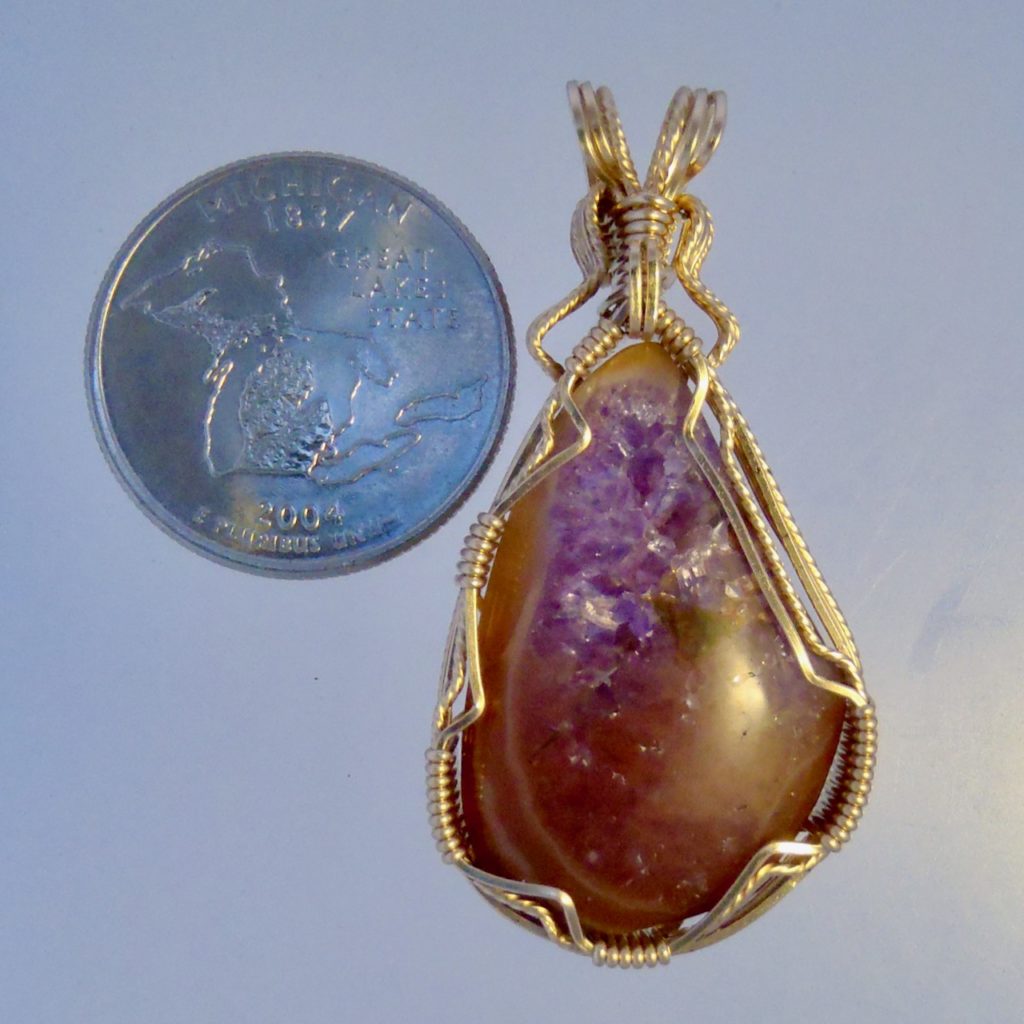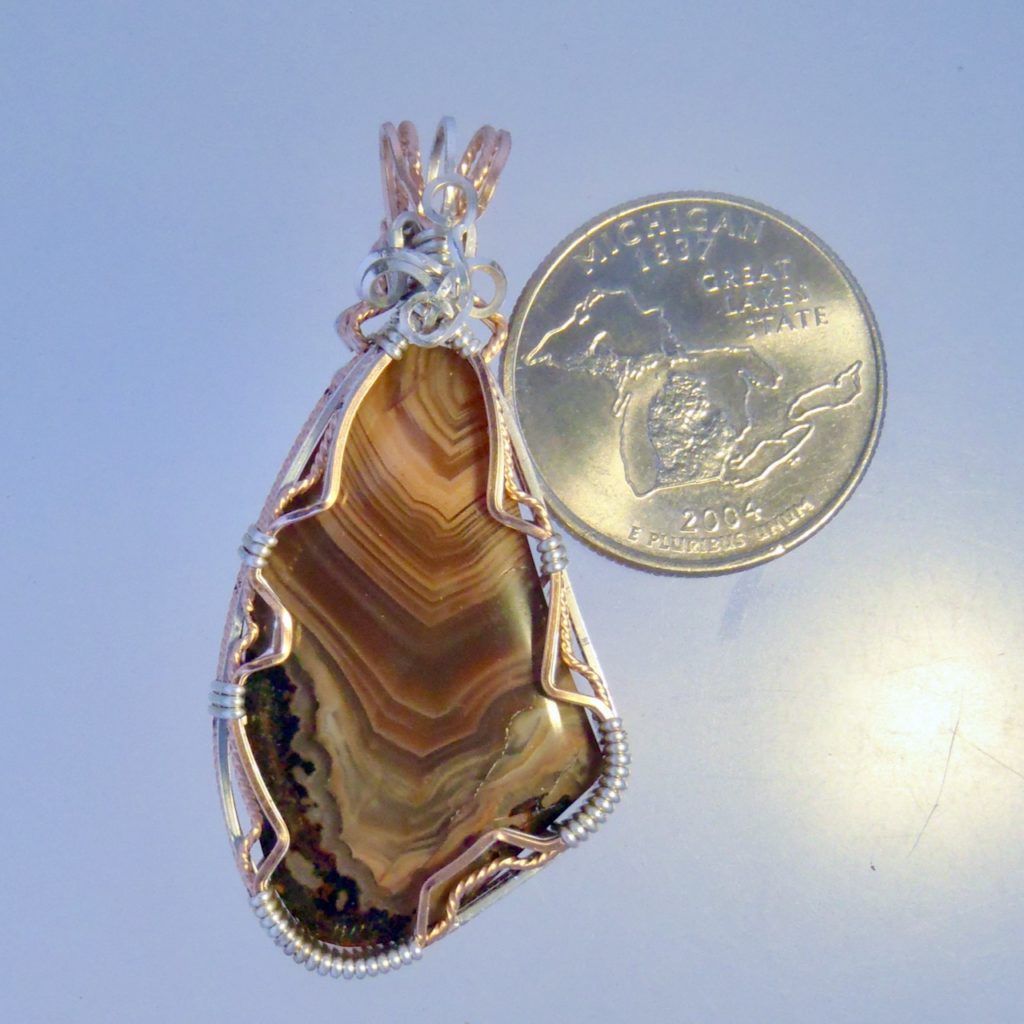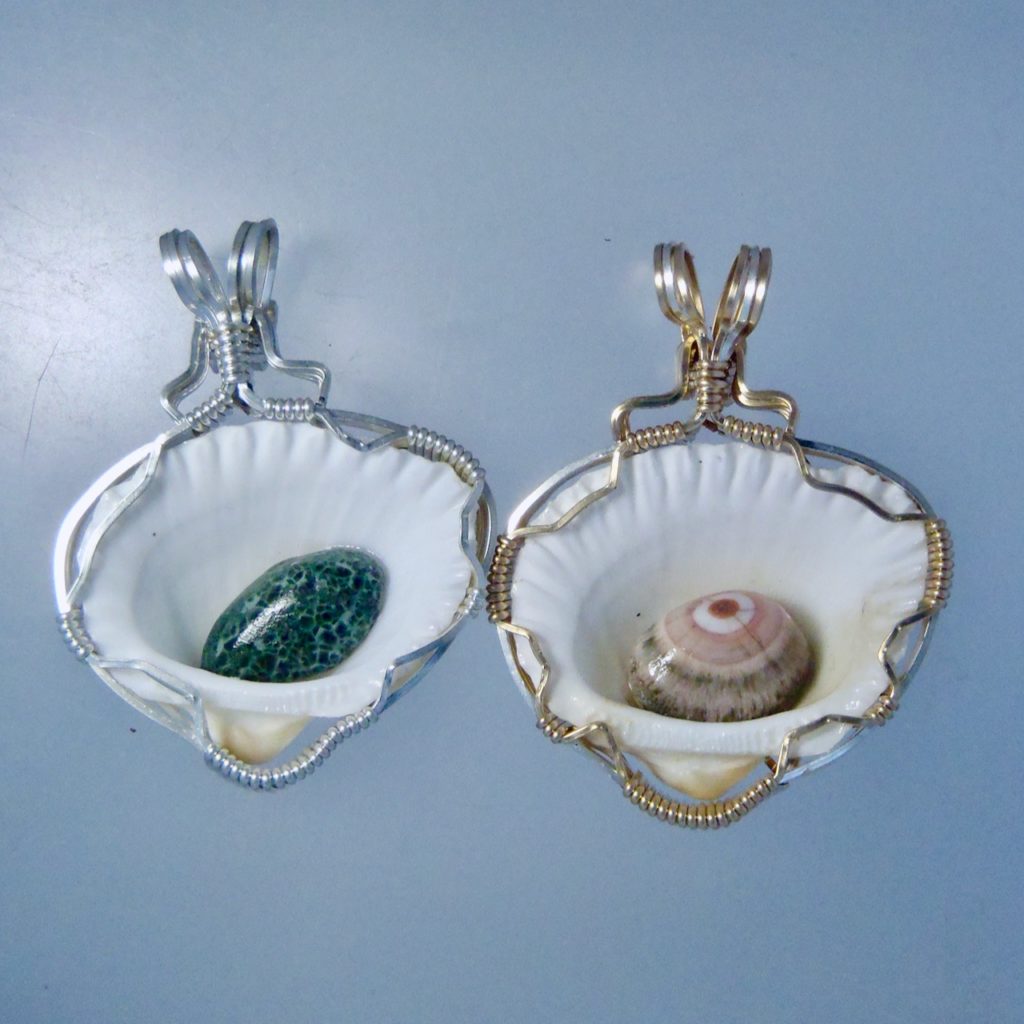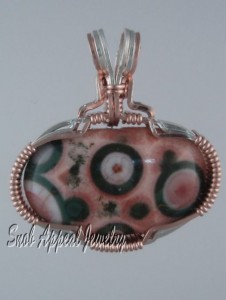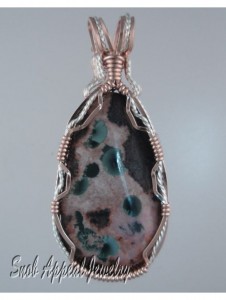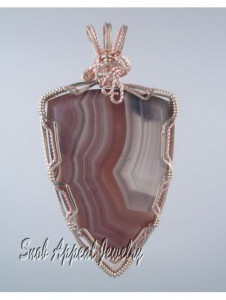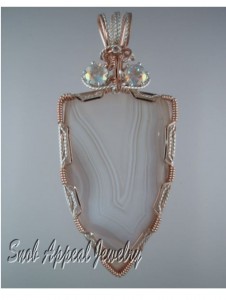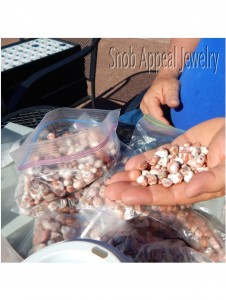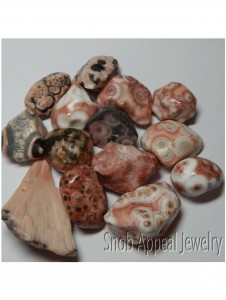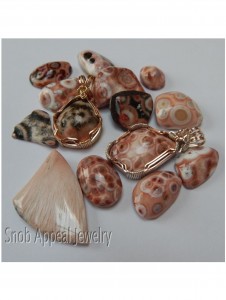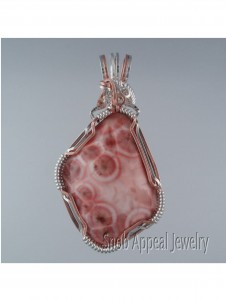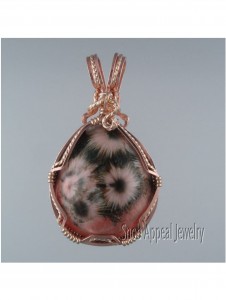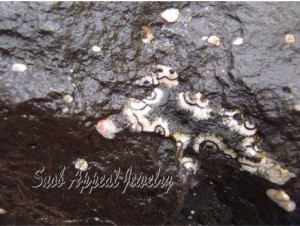
Even though you may see what appears to be a large Thomsonite in its’ Matrix, you can never tell how big it actually is.
Many times people will chat with me at an art show mentioning that Grandpa used to collect and work on rocks and minerals. My response is always; “Where ARE grandpas old rocks?” This leads to the next question; “Have you ever thought of selling them?”. Some of my best stuff, the really rare stuff, has come from grandpas old collections. On the flip side, many heirs think grandpa’s collection is exceedingly valuable, but it is not. They also put additional value on it because it has sentimental value. As a cabochon and jewelry maker, I cannot factor in sentimental value–I can only pay what is fair. Sometimes as part of the deal, sellers are happy to receive a piece of jewelry from something in the collection, giving them a memento from grandpa’s treasures.
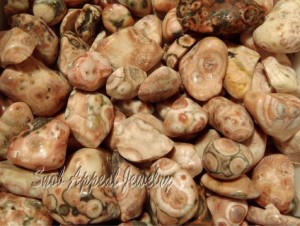
Tumbled Thomsontes are carefully sliced to prepare for forming into cabochons.
Back in the 50’s and 60’s rock collecting and the Lapidary Hobby were very popular. This hobby waned in the 70’s, but came back in the early 2000’s with the Treasure-Hunting Programs that became popular on TV. It’s human nature to imagine that you can get rich with very little effort, by finding that rare gemstone treasure that may be worth thousands of dollars. We know this seldom happens, but it sometimes does.
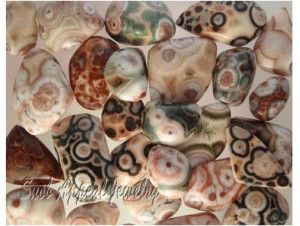
These wonderful North Shore Thomsonites’ are ready for jewelry.
Recently I was contacted by a couple from Minnesota that had inherited Grandpa’s collection. What peaked my interest was the mention of North Shore Thomsonite. I love Thomsonite, especially old stock Thomsonite from a now buried, famous, location near Grand Marais. Without a doubt, the most beautiful gem quality Thomsonite ever discovered came from that site. This Thomsonite Grandpa had came from that location back in the 60’s. They called to see what their Thompsonite might be worth, as they were considering selling it.
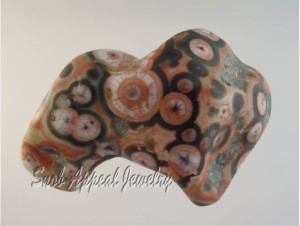
One of the most amazing Thomsonites’ I’ve ever seen, and the largest I own. I have not decided whether to cut it or sell it as a specimen. 3″X 2″X 3/4″
After a picture exchange my interest grew, and eventually we met half way in Escanaba. Bonnie and I instantly loved these folks, and I especially loved Grandpa’s Thomsonite. Much of it was beautiful, dark eyed, classic Thomsonite, that is the most coveted type for jewelry. Those that have good Thomsonite know it is special. It was worth the trip and I’ve been thinking about those pieces every minute since I got them!
All the Lake Superior area Thomsonite is subject to being mixed with other Zeolites or other minerals. It is not uncommon to find Thomsonite mixed with Mesolite or Natrolite. Thomsonite often shows up in Isle Royale Greenstone, and is very sought after for jewelry and by collectors. North Shore Thomsonite is famous for having dark eyes caused by Chlorite.
Variegated Prehnite, especially “eyed” Prehnite is many times mistaken for Thomsonite, especially in the Keweenaw. For many years eyed Prehnite was considered Thomsonite, until tests by Michigan Tech proved otherwise.
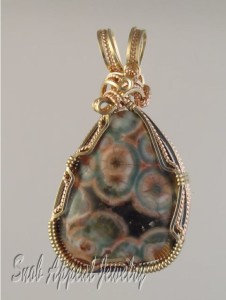
Colorful and dark-eyed Thomsonites make amazing and valuable jewelry.
Good Thomsonite is still found in the Grand Marais, Minnesota area. Persistency in extracting the Thomsonite from it’s hard basalt matrix is required. You cannot just beat Thomsonite out of a rock. This Zeolite is very brittle, and the lightest tap from a rock hammer can shatter a thousand dollar piece. Thomsonite is sometimes sensitive to the harmonics of a grinding wheel, and will just break apart. Years of cutting this material serves as valuable training to prevent damage while making cabochons, but still there are some pieces that just crumble no matter how careful you are.
Classic pieces of Thomsonite from Grand Marais often contain micro-Copper. Copper is also seen in much of the Thomsonite from the Keweenaw Peninsula also. (it is the Copper District)
I have started to cut this material and have found it exceptionally nice. Snob Appeal Jewelry specializes in jewelry made from rocks and minerals of the Lake Superior area, and Thomsonite is one of those premiere gemstones from that area. You can expect some really wonderful Thomsonite jewelry to start rolling off the workbench in the near future.
Just out or curiosity I was checking the metaphysical properties of Thomsonite. What I read was Thomsonite: “lifts the fog–of the brain and of the situations you are trying to solve. This allows your brain to work at a maximum level and for you to see what is truly going on and how to solve it. Thomsonite helps dissolve laziness”. Why are Bonnie and I not wearing Thomsonite every day? It would obviously solve a lot of problems.
